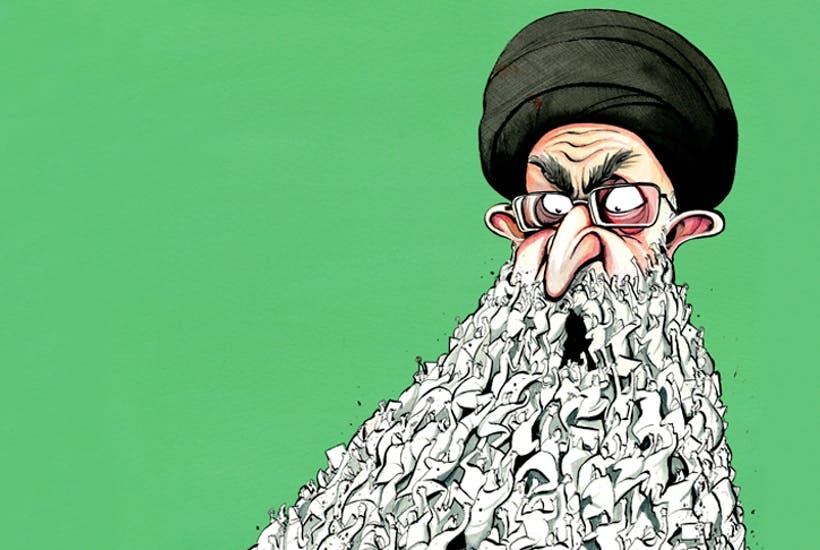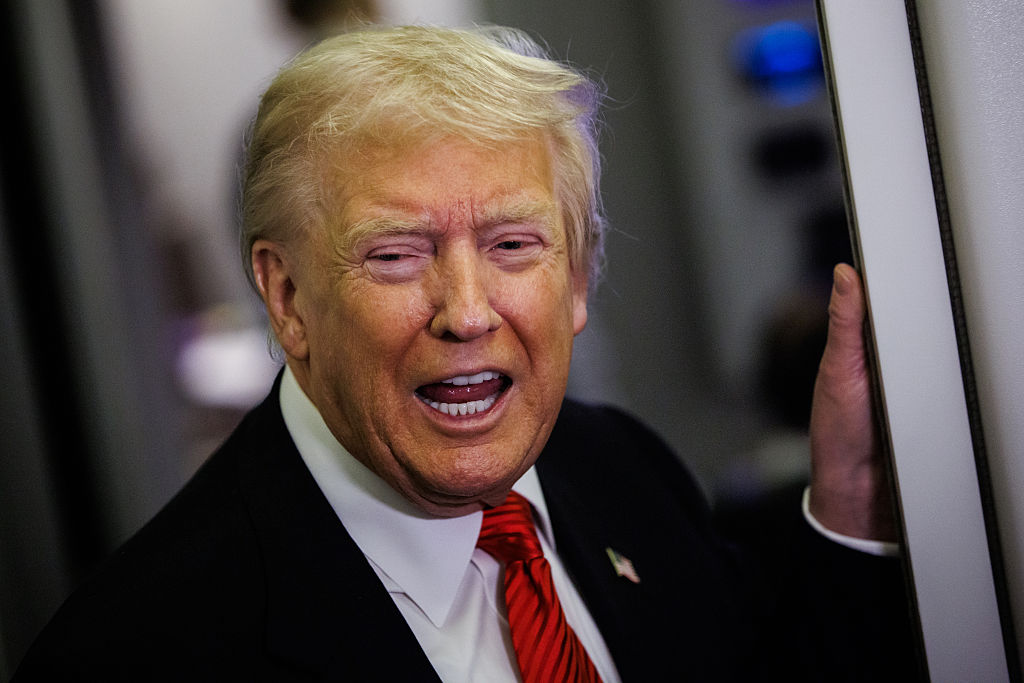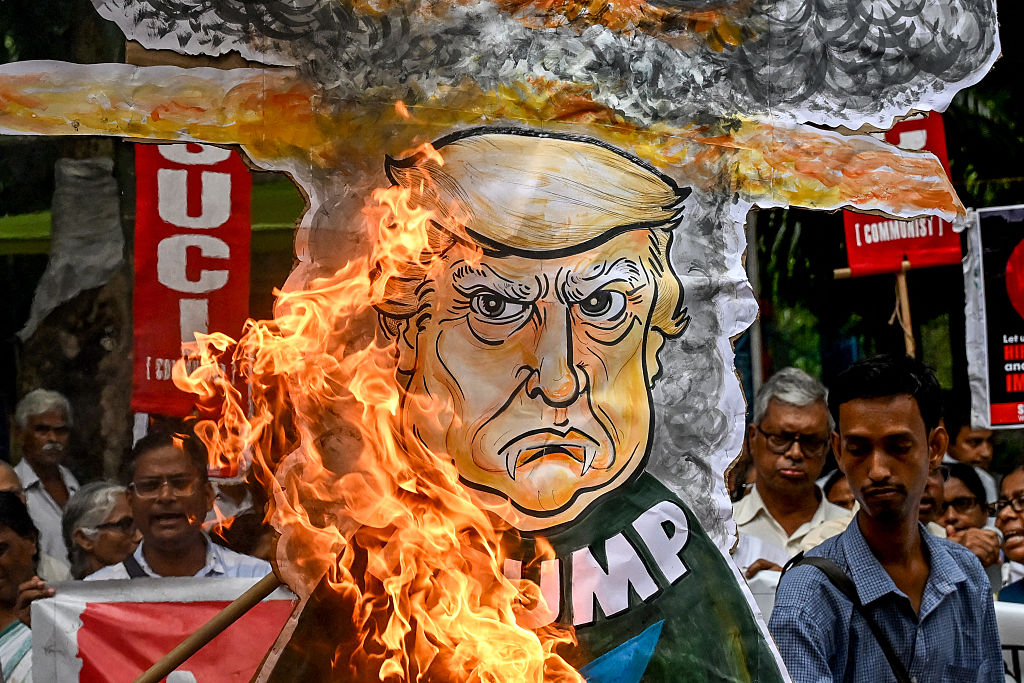The Biden administration seems to be bumbling on all diplomatic fronts these days. Not only is it trying to magic into existence a thaw in the US-China relationship, while Beijing is only throwing on the liquid nitrogen, but it’s also trying to resurrect a version of the nuclear deal with Iran. Concrete details are scant, but reporting from both the New York Times and the Wall Street Journal gives a decent sketch of what the White House is contemplating. It’s not pretty.
Under the outlines of the agreement, the US would “avoid tightening sanctions,” stop impounding Iranian ships and release billions in cash currently frozen by US sanctions for humanitarian applications. In exchange, Tehran would put a hold on enriching uranium above 60 percent (the WSJ indicates something slightly different, that further 60 percent enrichment would cease and “advanced centrifuges” would not be installed), end strikes on “American contractors” in Iraq and Syria, forswear the supply of ballistic missiles to Moscow and, in what may or may not be a separate deal, return some Americans held by the regime.
Sound like a good deal? For Iran, absolutely. At a time when the Islamic Republic is in the grip of economic collapse and widespread popular unrest against its theocrats in Tehran, taking the pressure off is the last thing Washington should be contemplating.
Avoiding the tightening of sanctions also leaves the US with little flexibility to deal with Iran’s non-nuclear threats, like its supply of drones and other arms to Russia. As for suspending US seizure of ships, you have to understand why they are impounded in the first place. The US does not sail the seas seizing foreign ships as the Iranians do; it seizes Tehran’s vessels carrying oil when they are in violation of sanctions against the regime. If the implication of this commitment is that the US will look the other way while Iran ignores sanctions, then the regime will have access to a steady supply of cash. That cash will be used for the same malign activities that usually leave Americans dead.
Regardless of sanctions enforcement, Tehran will get plenty of money if the deal pans out. The Biden administration claims that the money is restricted to humanitarian applications, and that Iran will not be able to use it for other, more malevolent ends. But Michael Rubin, a Middle East expert at AEI, says that “this is not possible to ensure.”
“We heard similar guarantees during the Obama administration, and the funds disappeared into [Iranian] Revolutionary Guard coffers,” Rubin told The Spectator. Bad actors will find a way to get the cash. “Put aside the fungibility of money,” Rubin added, “the Revolutionary Guards control perhaps 40 percent of the Iranian economy and have become expert at anti-sanctions Three-Card Monte.”
Exiled Iranians agree. “The Islamic Republic has proven that when funds are released, they do not reach the people, but end up funding terrorism and strengthening the regime’s ability to forcibly retain power,” Noor Pahlavi, granddaughter of the last Shah of Iran, said.
Masih Alinejad, a prominent Iranian women’s rights and pro-democracy activist, makes clear what the result of sanctions relief would be in a letter addressed to Biden that was shared with The Spectator.
“Your administration risks propping up the Islamic Republic, the same regime that you yourself condemned only a few months ago for cracking down on peaceful protesters,” Alinejad writes. “Your government has sanctioned Islamic Republic officials for blinding, raping, and killing its own citizens. Any outreach to Tehran will be construed by Iranians as an external intervention in favor of the Islamic Republic.” Where is the Biden administration’s commitment to human rights? “The Iranian people are not asking Western governments to save them. All they are asking is for Washington and its European allies to stop saving the Islamic Republic,” Alinejad continued. “Bankrolling the clerical regime props-up an autocracy at the expense of a democratic revolution in the name of Woman, Life, Freedom.”
“The Biden administration’s attempts to appease the Islamic Republic are a slap in the face to the Iranian people whom the regime has, for decades, ruthlessly oppressed,” Pahlavi told The Spectator. “It shows his campaign promise to put human rights and democracy at the center of his foreign policy was all talk.”
For all of the quite significant concessions to Tehran, precious little is given to keeping its nuclear program in check. Iran may promise to “expand its cooperation with international nuclear inspectors” — but good luck enforcing its vow not to enrich above 60 percent when the country has always been nuclear inspectors’ second-worst nightmare (with first place going to North Korea, naturally). In any case, according to the WSJ, “Iran already has enough 60 percent material for at least two nuclear weapons and can convert it into weapons-grade enriched uranium in a matter of days.” By the time Washington realized Iran was cheating on the deal, it would be too late. And contrary to popular belief, you do not need 90 percent enrichment for a bomb: “The notion that Tehran seeks perfection is nonsense,” wrote Rubin in a recent article, “The bomb dropped on Hiroshima was only approximately 80 percent enriched.”
What about Iran’s other promises beyond enrichment curbs? It promises not to kill Americans in the Middle East, and that it will not send ballistic missiles to Moscow for use in the war in Ukraine. The fact that Tehran has to promise not to kill Americans is as clear an illustration as any that the regime cannot be trusted. Assurances from Tehran are about as valuable as Russia’s assurances it would not invade Ukraine. “The Islamic Republic is an ally of China and provides munitions to Russia in its war of aggression in Ukraine,” Alinejad said. “The Islamic Republic is fundamentally an enemy of the United States government and its people.”
“This regime has proven that it cannot be trusted to honor agreements,” Pahlavi said, “and experts say these attempts won’t even delay the regime’s ability to develop a nuclear weapon; it will simply fund a terrorist regime and its terrorist activities and send the message the regime can get away with anything, even the mass slaughter of its youth.”
It would be a victory for America to see the return of hostages held by the regime, and getting US citizens back on US soil should be celebrated. But the White House shouldn’t be giving up the world to achieve this. Easing the pressure on Iran will leave it one step closer to the bomb, which would endanger millions. A swathe of critical issues are also left unaddressed within this framework. Tehran’s ballistic missile program is untouched; its broader destabilizing and terrorist activity in the region and the world is not curbed, and nothing is done to roll back its nuclear program.
If some agreement along the current lines goes through, it could revitalize Iran’s economy at a moment when it is just months away from becoming the world’s newest nuclear power. “The whole purpose of the nuclear negotiations was to stop Iran’s proliferation,” Rubin said, “not to pay for it.” As Alinejad points out, the path towards a non-nuclear Iran is clear: “The way to put an end to the Islamic Republic’s nuclear program once and for all is to support the democratic aspirations of Iranian people.”
Secretary of state Antony Blinken claims that the reporting on US-Iran negotiations is “simply not accurate and not true” — but that is hard to take seriously. “The mistake is making the false assumption that, whether by carrot or by stick, this criminal regime will change its behavior,” Pahlavi said. “This regime cannot and will not change its behavior — and this administration has clearly failed to learn the lessons of history.”

























